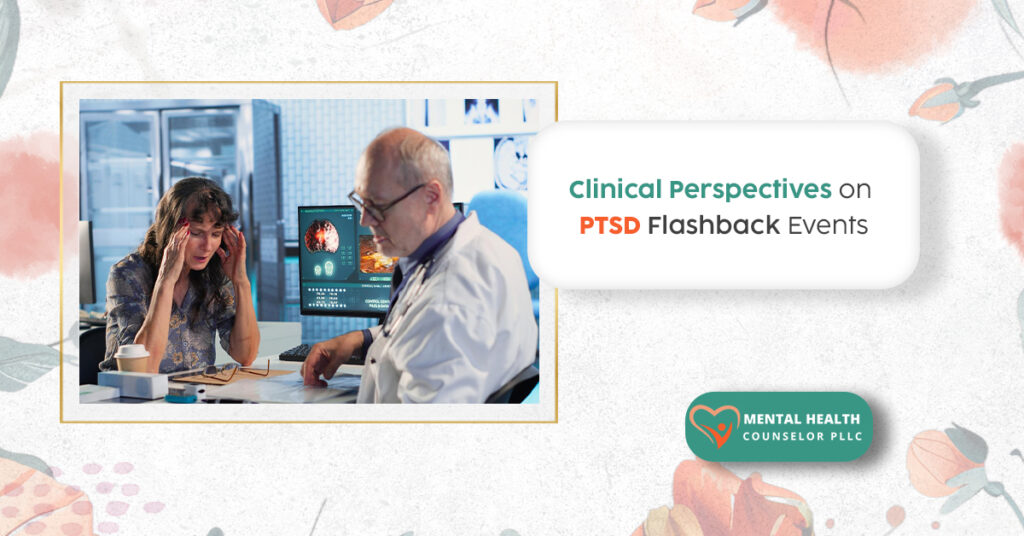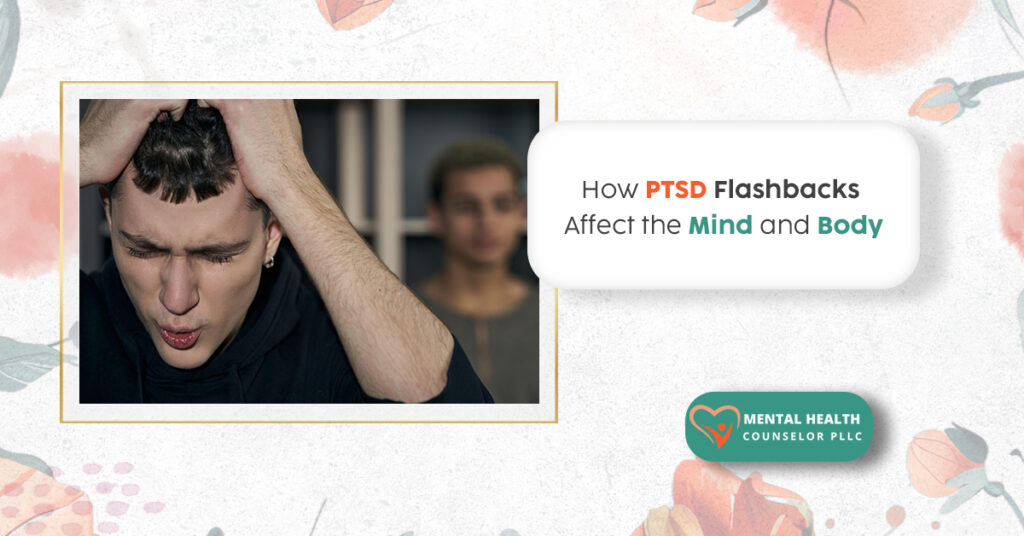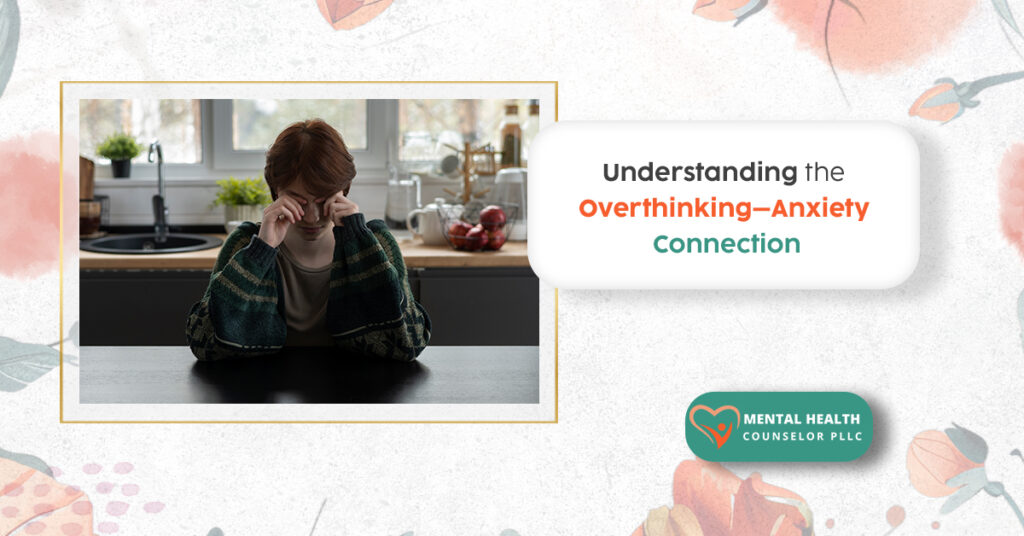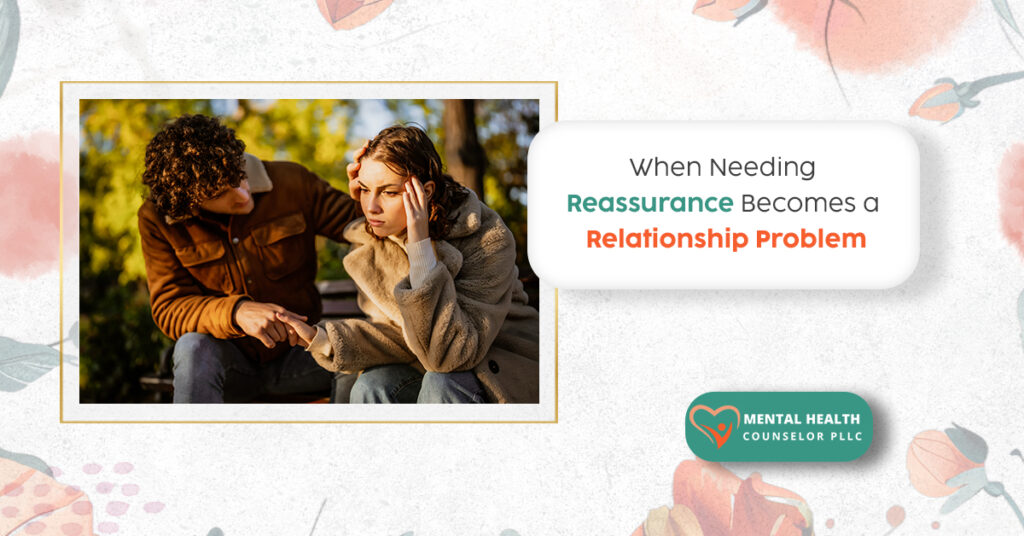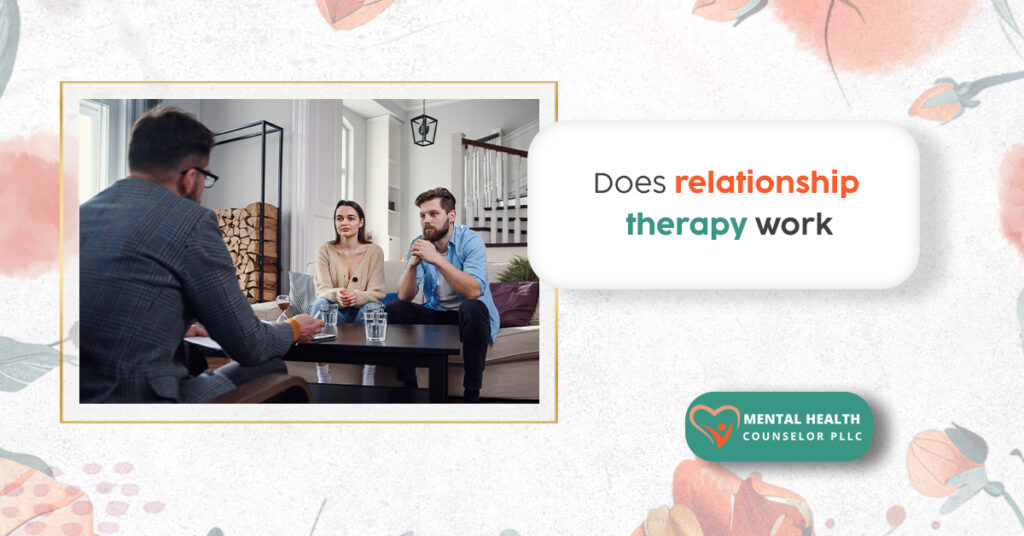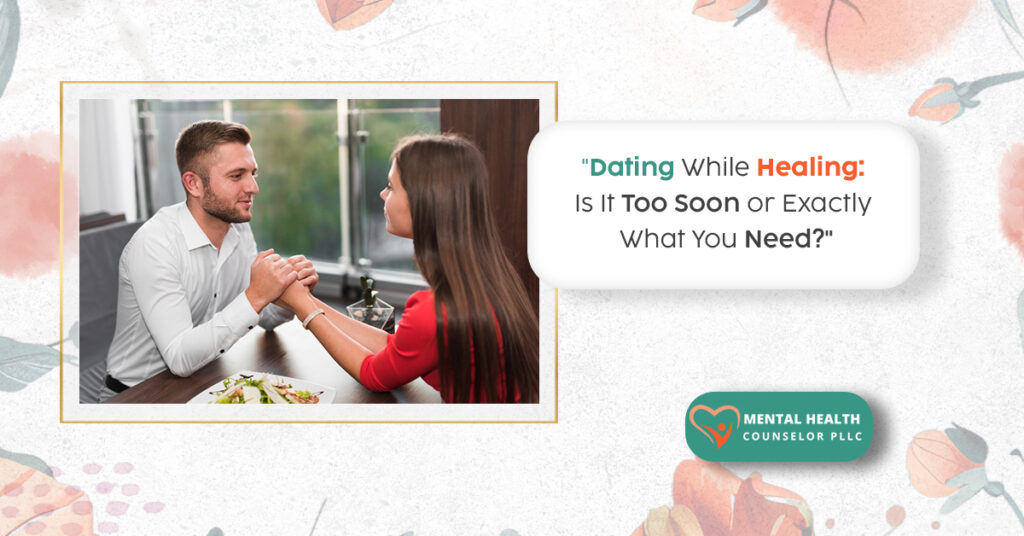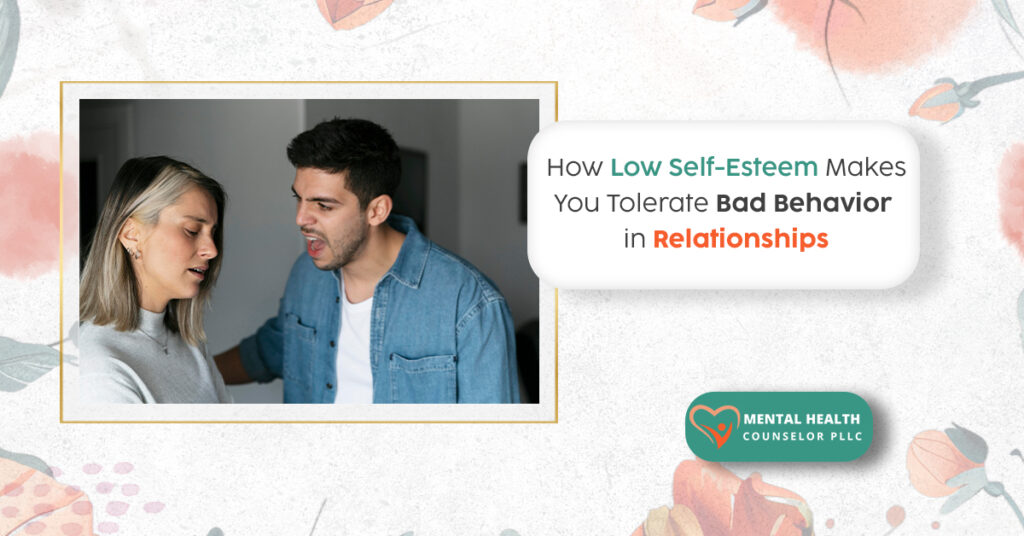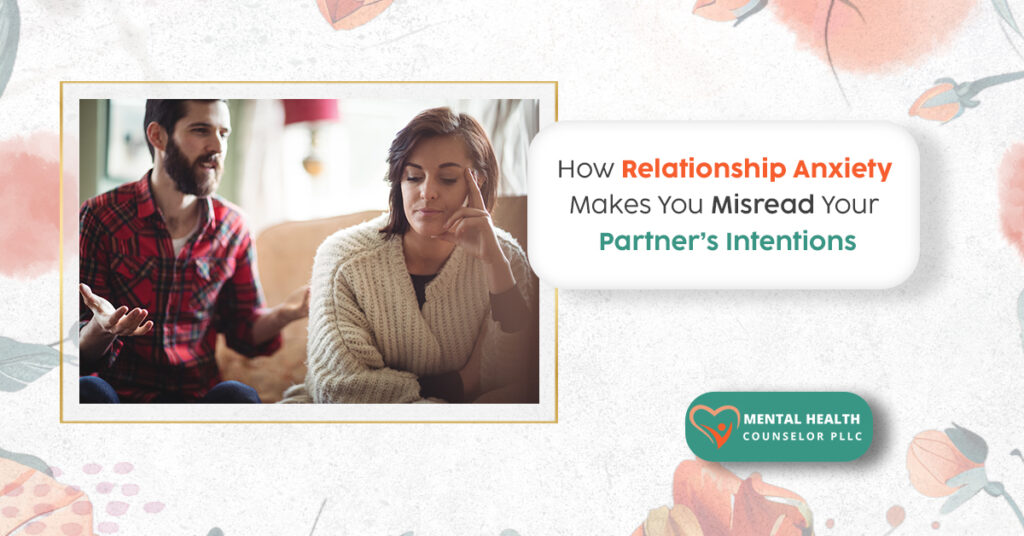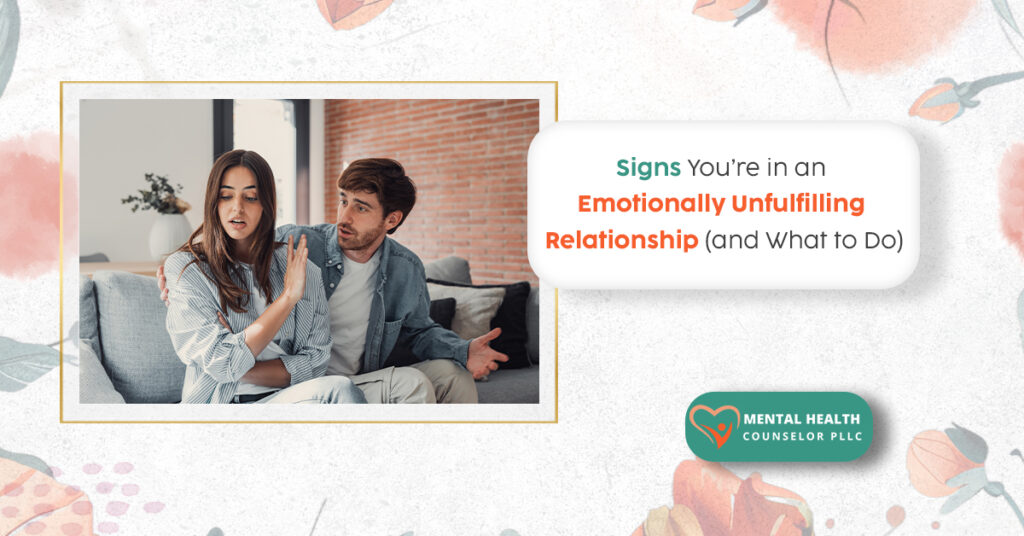Clinical Perspectives on PTSD Flashback Events
PTSD flashbacks are not only memories. They can feel very real.When someone experiences a flashback of traumatic event, their brain isn’t simply recalling what happened. It’s reliving it. The distinction matters a lot. When Past and Present Collide Let’s start with the basics. What is a flashback in clinical terms?It’s an intrusive experience where past trauma feels present. The patient’s mind can’t distinguish between then and now. The event isn’t something that happened. To the person experiencing it, it’s something that’s happening.Regular memories feel distant. People know they’re from the past. Flashbacks don’t work that way. They pull the individual back completely. The Physical Reality PTSD flashback symptoms can show up in the body first.Patients report: These are your nervous system activating survival mode.What do flashbacks feel like from the inside? People describe it differently: How Trauma Gets Stored Traumatic memory forms under extreme conditions.The brain has systems for processing regular experiences. But overwhelming events bypass these systems.The result is: fragments of experience that lack proper organization.Normal memories have context. You know when they happened. You understand they’re in the past. Trauma flashbacks don’t come with that context.The amygdala, your brain’s alarm system, goes into overdrive.Meanwhile, the hippocampus, which normally timestamps memories, struggles to function. You end up with sensory information without a proper filing system. What Sets Them Off PTSD triggers vary dramatically between individuals.Some are obvious. Others seem random until you understand the connection. Trauma triggers PTSD responses through associations you might not consciously recognize.What are some common PTSD triggers that clinicians observe? What Happens When PTSD is Triggered? The body responds before the mind catches up.The PTSD trigger response activates instantly. Adrenaline floods your system. Your rational brain goes offline. You’re in survival mode before you realize what’s happening.See How PTSD Flashbacks Affect the Mind and Body. Different Forms They Take Not all flashbacks look the same. Types of flashbacks include several distinct experiences. Visual ones involve seeing scenes from the trauma. You might see images overlaid on your current surroundings. Or your vision might be entirely consumed by the past. Somatic flashbacks live in your body. You feel physical sensations without necessarily having conscious memories. Your body remembers what your mind has tried to forget. Emotional flashbacks bring overwhelming feelings. Terror. Helplessness. Rage. These emotions seem to come from nowhere. But they’re connected to post traumatic stress flashbacks your system is processing. Understanding these varied presentations helps clinicians recognize flashback episodes that might otherwise go unidentified, particularly when visual components are absent. The Clinical Picture A PTSD episode involves multiple systems activating simultaneously.Symptoms of a flashback that therapists watch for: What is a PTSD episode in practice? It’s when PTSD triggered responses take over completely. The person isn’t choosing to react this way. Their nervous system is running an automatic program.PTSD and flashbacks connect at a fundamental level. Flashbacks represent core symptoms of the disorder.Not everyone with trauma experiences them. But they’re among the most distressing symptoms when they occur.These observations inform treatment approaches. Clinicians work to help patients develop awareness of their own flashback patterns and early warning signs. The Path Gets Clearer Triggers of PTSDcan be identified and addressed.Memory flashback experiences can become less frequent and less intense. The brain has remarkable plasticity. The same neural pathways that learned to respond with terror can learn different responses.Treatment approaches work by targeting specific mechanisms. You learn to stay grounded in the present. You process traumatic material at a pace you can handle. You build new associations that signal safety.Recovery means the past stops invading your present. PTSD flashbacks may become less overwhelming. Less frequent. More manageable. Get Started Trauma trigger responses aren’t permanent. With the right support, your nervous system can learn it’s safe now.At Mental Health Counselor PLLC, we specialize in trauma-informed care that respects your experience.Our therapists know the neurobiology of PTSD flashbacks. More importantly, they understand the person experiencing them.We offer flexible options. In-person sessions in New York City. Or secure video appointments from wherever you feel comfortable. Your healing happens at your pace. Call Mental Health Counselor PLLC at (212) 696-4717 or visit mentalhealthcounselor.net to schedule your consultation. FAQs How long does a typical flashback last? It varies widely. Some last seconds. Others continue for several minutes. Learning grounding techniques can shorten their duration significantly. Can I have flashbacks without having full PTSD? Yes. Flashbacks related to trauma may also happen without all the diagnostic criteria. The right evaluation makes you understand what you are going through. Are intrusive thoughts the same as flashbacks? Not quite. Intrusive thoughts are undesirable mental content. Flashbacks are the real experience of being in the traumatic experience. It is the feeling of time collapsing that makes them different. Do all flashbacks involve visual memories? No. Some people experience purely emotional or body-based flashbacks. You might feel overwhelming sensations without any visual component at all. Is it possible that flashbacks occur unnoticed on my part? Absolutely. Particularly somatic and emotive ones. You may experience a moment of terror or even physical distress without relating it to some trauma of the past until later. What does a PTSD flashback look like to an outsider? The person might stare blankly. They might react to things you can’t see. Sometimes they seem completely unreachable.
Clinical Perspectives on PTSD Flashback Events Read More »

